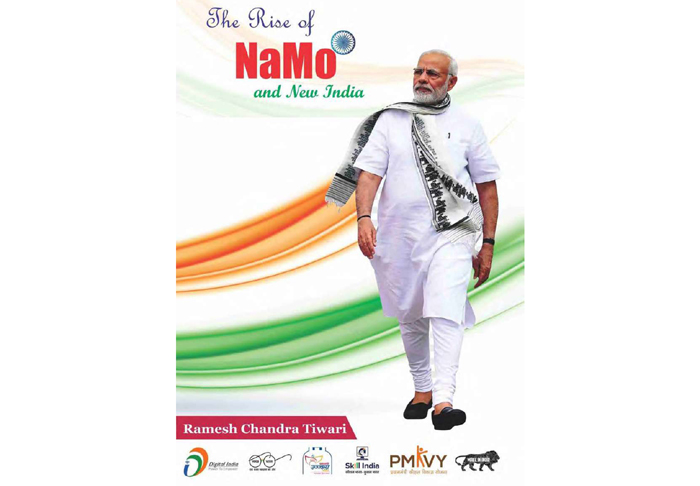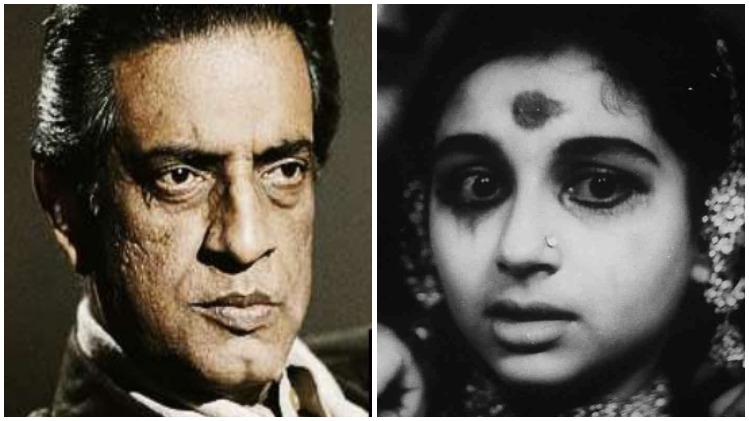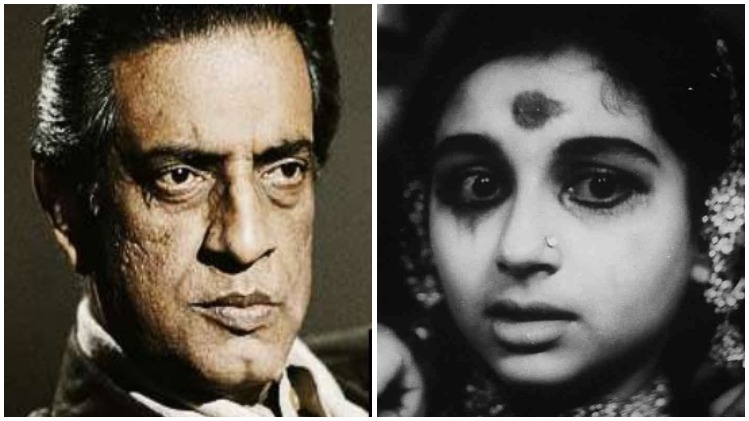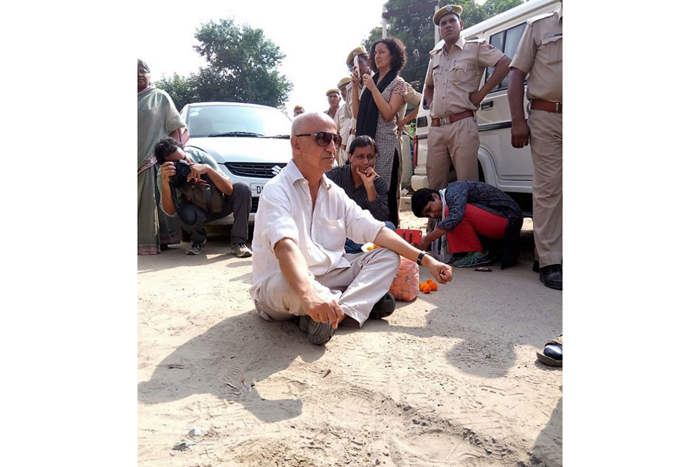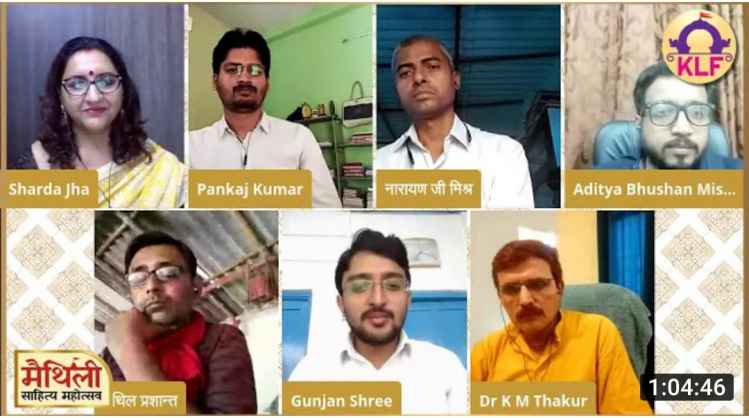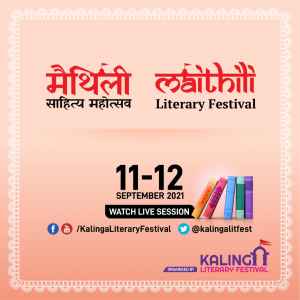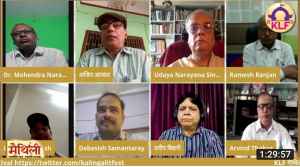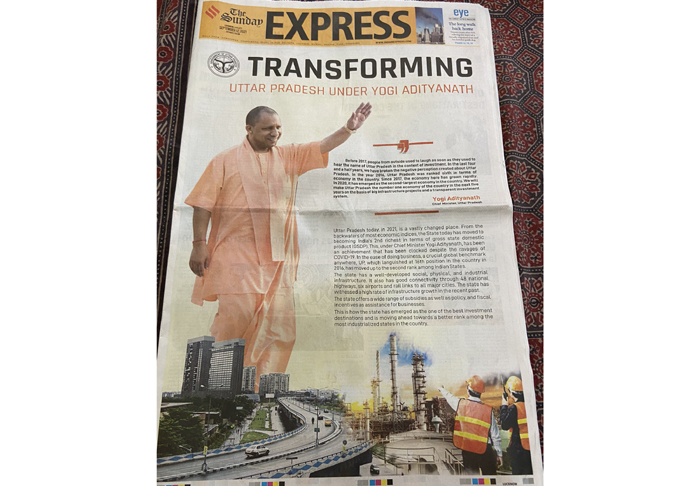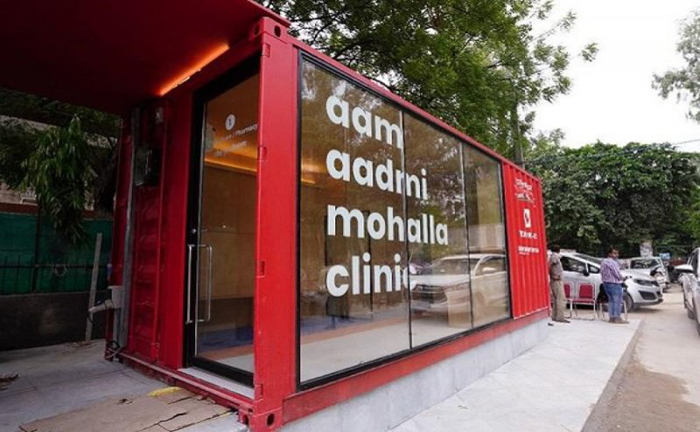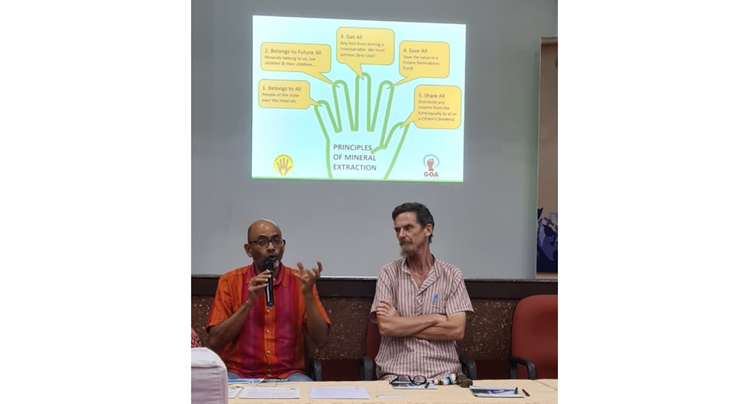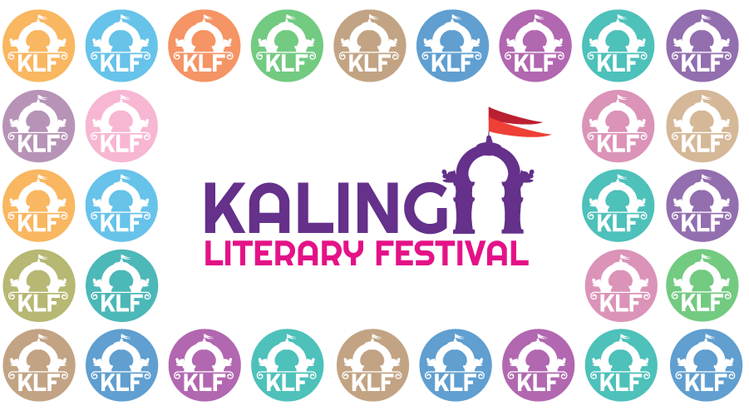| S.No. |
Name |
Organisation / Independent / Activists |
| 1 |
Rajmohan Gandhi, Historian |
Historian |
| 2 |
Julio Ribero, IPS (Retd.) |
Former Police Commissioner of Mumbai |
| 3 |
Admiral Ramdas |
Former Chief of Naval Staff |
| 4 |
Aruna Roy |
MKSS |
| 5 |
Prof. Rooprekha Verma |
Former VC, Lucknow University |
| 6 |
Indira Jaising, |
Senior Advocate, Supreme Court |
| 7 |
Dr. Syeda Hameed |
Former Member, Planning Commission of India |
| 8 |
Prof. Jean Dreze |
Economist |
| 9 |
Arjun Appadurrai |
Anthropologist, Berlin |
| 10 |
Vivan Sundaram |
Artist |
| 11 |
Jagdeep Chhokar, |
Professor (retd), IIM, Ahmedabad |
| 12 |
Shanta Sinha |
Former Chairperson, NCPCR |
| 13 |
Medha Patkar, |
NAPM |
| 14 |
Flavia Agnes |
Majlis, Mumbai |
| 15 |
Prof. Amitabh Kundu |
Urban Studies Expert |
| 16 |
Prashant Bhushant |
Senior Advocate, Supreme Court |
| 17 |
Subhashini Ali |
Member Politbureau CPI (M) |
| 18 |
Uma Chakravarty |
Senior Advocate, Supreme Court of India |
| 19 |
Madhu Bhaduri, |
IFS, (Retd), Former Ambassador to Portugal |
| 20 |
Shiv Shankar Mukherjee, IFS (Redt.) |
Former Ambassador to UK |
| 21 |
Mihir Desai |
Senior Advocate Bombay High Court and SC of India |
| 22 |
Kavita Krishnan |
General Secretary, AIPWA |
| 23 |
Prof Apoorvanand, |
General Secretary, AIPWA |
| 24 |
Henri Tiphagne, |
People’s Watch |
| 25 |
Annie Raja |
Gen Sec. NFIW |
| 26 |
Ravi Kiran Jain |
President, PUCL |
| 27 |
V.Suresh |
General Secretary, PUCL |
| 28 |
Anand Grover |
Senior Advocate, Supreme Court |
| 29 |
Colin Gonsalves |
Senior Advocate, Supreme Court |
| 30 |
Bharat Bhushan |
Columnist |
| 31 |
Anand Sahay |
Columnist |
| 32 |
Aakar Patel |
Amnesty India |
| 33 |
Abdul Hafiz Lakhani |
Editor siyasat dot net |
| 34 |
Abey George |
RTI NETWORK KERALA |
| 35 |
Abha Bhaiya |
Feminist Activtis |
| 36 |
Abhay Kumar |
Social Activist |
| 37 |
Abhinandan Sekhri |
News Laundry |
| 38 |
Abhisikta Dasgupta |
Performance Researcher-Practitioner |
| 39 |
Abraham Mathai |
Human Rights Worker, Mumbai |
| 40 |
Abu Mohammed Sajid Basha |
Activist |
| 41 |
Achin Vanaik |
Retd prof, New Delhi |
| 42 |
Adhiraj Sarin |
Indendent |
| 43 |
Aditya Mukherjee |
Retired Professors, JNU |
| 44 |
Aditya Shrivastava |
Lawyer, Dekhi |
| 45 |
Adv. Sachin Godambe |
Social Activist & Freelance Journalist) Pune |
| 46 |
Adv.Ansar Indori |
National Confederation of Human Rights Organization’s (NCHRO) |
| 47 |
Ajay Prakash |
Editor, Janjwar |
| 48 |
Ajey Saxena |
PUCL Pratapgarh |
| 49 |
Akash Banerjee |
Desh Bhakt |
| 50 |
Akhil Chaudhary |
Lawyer and PUCL |
| 51 |
Alaka Basu |
Professor, Cornell University |
| 52 |
Alok Jain |
Independent |
| 53 |
Amala Dasarathi |
Advocate |
| 54 |
Amit Gupta |
Business man |
| 55 |
Amita Cherian |
Advocate |
| 56 |
Amita Joseph |
Activist |
| 57 |
Amitabh Kundu |
Independent |
| 58 |
Ammu Abraham |
Feminist Activist |
| 59 |
Amod Shah |
Independent |
| 60 |
Amrit Kumar Goldsmith |
Independent |
| 61 |
Amrita Chhachhi |
Photographer, Delhi |
| 62 |
Amrita Johri |
Social Activist |
| 63 |
Amrita Shodhan |
Independent |
| 64 |
Anand Chakravarty |
Academic |
| 65 |
Anand K Sahay |
Columnist |
| 66 |
Anand Patwardhan |
Film Maker |
| 67 |
Anand Vardhan Singh |
The Public India |
| 68 |
Anant Bhatnagar |
PUCL Rajasthan |
| 69 |
Anant Maringanti |
HUL |
| 70 |
Ania Loomba |
Academic |
| 71 |
Anil Kumar |
Activist |
| 72 |
Anita Agnihotri, IAS |
Former Secretary, Department of Social Justice Empowerment, GoI |
| 73 |
Anita Mathur |
Azad Foundation |
| 74 |
Anita Rampal |
Educationist |
| 75 |
Anjali Bharadwaj |
Social Activist |
| 76 |
Anjor Bhaskar |
Right to Food and Work Campaign |
| 77 |
Ankita Aggarwal |
Researcher |
| 78 |
Anju Nayal |
PUCL Ajmer |
| 79 |
Anna Dani, IAS, Retd |
Former Additional Chief Secretary, Govt. of Maharashtra |
| 80 |
Anubha Rastogi |
Advocate |
| 81 |
Anuradha Marwah |
Ajmer Adult Litreacy Association |
| 82 |
Anwar Ali |
Inpendent |
| 83 |
Apar Gupta |
Advocate |
| 84 |
Aparna |
President, India Federation of Trade Unions |
| 85 |
Archana Prasad |
JNU |
| 86 |
Arif Jafar |
Naz Foundation International |
| 87 |
Arjun Appadurai |
Anthropologist, Berlin |
| 88 |
Arun Gupta |
Child and Nutrition Expert |
| 89 |
Arun Kumar |
Retd Prof. JNU |
| 90 |
Arun Vyas |
Advocate PUCL |
| 91 |
Aruna Rodrigues |
Food Rights Activist |
| 92 |
Aruna Roy |
MKSS |
| 93 |
Arundathi V |
Social Arts Practioner, himachal pradesh |
| 94 |
Faisal Khan |
Khudai Khidmatgar |
| 95 |
Arundhati Dhuru |
National Alliance of People’s Movements (NAPM) |
| 96 |
Asawari Kapur |
Independent |
| 97 |
Asha Kalra |
Children and woman welfare society |
| 98 |
Asha Kotwal |
Dalit women fight |
| 99 |
Asha Mishra |
Bharat Gyan Vigyan Samiti |
| 100 |
Asha Sharma |
Secretary, AIDWA Delhi |
| 101 |
Asha Sharma |
Secretary, AIDWA Delhi |
| 102 |
Ashish K Mishra |
The morning context |
| 103 |
Ashma Izzat |
Advocate |
| 104 |
Ashok Kumar Sharma, IFS, Retd |
Former MD, State Forest Development Corporation, Govt. of Gujarat |
| 105 |
Ashok Verma |
Convenor, Jharkhand Loktantrik Manch |
| 106 |
Ashrfi Prasad |
Right to food Campaign Jharkhand |
| 107 |
Ashwani Kumar Paliwal |
PUCL Udaipur |
| 108 |
Aunohita Mojumdar |
Freelance Journalist |
| 109 |
Aurobindo Behera, IAS |
Former Member, Board of Revenue, Govt. of Odisha |
| 110 |
Avantika Srivastava |
Social Activist |
| 111 |
Avinash Mohananey, IPS |
Former Director General of Police, Govt. of Sikkim |
| 112 |
Ayeesha Rai |
National Network of Sex Workers |
| 113 |
Aysha |
Right to food Campaign |
| 114 |
Balram |
Right to food Campaign Jharkhand |
| 115 |
Barun Bandhopadyay |
Editor People’s Reporter |
| 116 |
Beena Jadav |
Rahethan Adhikar Manch -Gujarat |
| 117 |
Bela Bhatia |
Activist |
| 118 |
Bhanwar Meghwanshi |
PUCL Rajasthan |
| 119 |
Bhanwari Bai |
Mahila Jan Adhikar Samiti, Ajmer |
| 120 |
Bharat |
Vishakha: Women’s Research and Resouce group |
| 121 |
Bharat Dogra |
Independent |
| 122 |
Bhaswati |
HUL |
| 123 |
Bhavna Sharma |
Social Activist, Anhad |
| 124 |
Bidyut Mohanty |
Academic |
| 125 |
Binayak Sen |
Human Rights Worker and PUCL |
| 126 |
Bindu Singh |
Right to Food, UP |
| 127 |
Binod Kumar |
Social Activist, Ranchi |
| 128 |
Biswa soren |
Right to Food Campaign, Jharkhand |
| 129 |
C B Choudhary |
Samajwadi Jan Parishad |
| 130 |
Chander |
Independent |
| 131 |
Chandra Kala |
Ekal Nari Shakti Sangathan |
| 132 |
Chandrakant Chaudhari |
Social Activist, Bhusaval |
| 133 |
Chandrashekhar Balakrishnan. IAS, Retd. |
Former Secretary, Coal, GoI |
| 134 |
Chayanika Shah |
Queer Feminist Researcher, Mumbai |
| 135 |
Chetan Gollapalli |
Independent |
| 136 |
Chhaya Pachauli |
Centre for Health and Equity, Jaipur |
| 137 |
Clifton D’Rozario |
National Convenor, All India Lawyers Association for Justice |
| 138 |
Cynthia Mathew CJ |
Independent |
| 139 |
D. Geetha Advocate |
Activist |
| 140 |
D. L. Tripathi |
PUCL Rajasthan |
| 141 |
D. Leena |
|
| 142 |
Deb Mukharji, IFS |
Former High Commissioner to Bangladesh and former Ambassador to Nepal |
| 143 |
Debmalya Nandy |
Nrega Sangharsh Morcha |
| 144 |
Deepak Kalra |
Disabled Rights Expert |
| 145 |
Denzil Fernandes |
Academic, Delhi |
| 146 |
Deshdeep Dhankhar |
University of Hyderabad |
| 147 |
Dev Benegal |
Film Director |
| 148 |
Dev Desai |
Human Rights activists, Ahmedabad ANHAD |
| 149 |
Dhanya Rajendran |
The news minute |
| 150 |
Dilip D’Souza |
Writer, Bombay |
| 151 |
Dipali Taneja |
Independent |
| 152 |
Dipani Sutaria |
Gujarat |
| 153 |
Divakar Narayanra |
Independent |
| 154 |
Dr Kochurani Abraham |
ICWM, Kerala |
| 155 |
Dr Ashok Dhawale |
National President, All India Kisan Sabha (AIKS) |
| 156 |
Dr Raja Ram |
Retired Faculty, Delhi University. |
| 157 |
Dr RatiRao E |
AIPWA |
| 158 |
Dr Saif Mahmood |
Advocate, Supreme Court of India |
| 159 |
Dr Sunil Kaul |
Ex- Advisor to the SC Commissioners |
| 160 |
Dr Sunilam |
Kisan Sangharsh Samiti and Bahujan Samwad. |
| 161 |
Dr V. Lakshminarayana |
AIPF, PUCL |
| 162 |
Dr. Akash Bhattacharya |
Faculty Member, School of Education, Azim Premji University |
| 163 |
Dr. Alaka Rao |
Public Health Consultant |
| 164 |
Dr. Asha Kaushik |
Rajasthan University Women’s Association |
| 165 |
Dr. Ashok Dhawale |
President – AIKS |
| 166 |
Dr. Jyothi Krishnan |
RTI NETWORK KERALA |
| 167 |
Dr. Kanchan Mathur |
Women Studies Consultant |
| 168 |
Dr. Laad Kumari Jain |
Rajasthan University Women’s Association |
| 169 |
Dr. Malti Gupta |
RUWA and NFIW |
| 170 |
Dr. Mohammed Hasan |
Independent Academic |
| 171 |
Dr. Pawan Surana |
Rajasthan University Women’s Association |
| 172 |
Dr. Pritam Pal |
Women Studies and Public Health Consultant |
| 173 |
Dr. RatiRao E. |
AIPWA , PUCL |
| 174 |
Dr. Renuka Pamecha |
Women’s Rehabilitation Group |
| 175 |
Dr. Saroop Dhruv |
Cultural Activist, Gujarat |
| 176 |
Dr. Shobhita Rajagopal |
Women Studies Consultant |
| 177 |
Dr. Smriti Rao |
Professor, Economics and Global Studies, Assumption University |
| 178 |
Dr.Meeta Singh |
PUCL and Foundation for the Dignity of the Girl Child |
| 179 |
Dr.Mohan Rao |
Former Professor at JNU |
| 180 |
Dunu Roy |
Social Activist and Thinker |
| 181 |
E A S Sarma |
Visakhapatnam |
| 182 |
Elina Horo |
Adivasi Women’s Network |
| 183 |
Ena Zafar |
Human Rights Activist |
| 184 |
Eshwarappa M |
ESG India |
| 185 |
Faizan Alam |
Filmmaker, Activist |
| 186 |
Fatema |
Indendent |
| 187 |
Father Jothi SJ |
Human Rights Activist, Tripura |
| 188 |
Feroze Mithiborwala |
India Palestine Solidarity Forum |
| 189 |
Francis Parmar |
Independent |
| 190 |
Ganatantrik Adhikar Surakhya Sangathan |
Odisha |
| 191 |
Ganga ram Paikra |
Right to Food Campaign Chhattisgarh |
| 192 |
Gautam Mody |
New Trade Union Initiative |
| 193 |
Gayatri Singh |
Senior Advocate Bombay High Court |
| 194 |
Geeta Kapur |
Art Critic, Delhi |
| 195 |
Geeta Seshu |
Co-editor, Free Speech Collective |
| 196 |
George Thomas |
Orthopaedic Surgeon, Chennai. |
| 197 |
Ghanshyam Shah |
Ahmedabad |
| 198 |
Girija Boddupalli |
Oxfam |
| 199 |
Githa Hariharan |
Writer |
| 200 |
Gladston Xavier |
Professor in social work. |
| 201 |
Gopal Menon |
Film Maker |
| 202 |
Gopalan Balagopal, IAS, Retd |
Former Special Secretary, Govt. of West Bengal |
| 203 |
Gurjeet Singh |
Right to Food Campaign, Jharkhand |
| 204 |
Gutta Rohith |
Human Rights Forum, AP and TN |
| 205 |
Harkesh Bugalia |
Rajasthan Nirman Env General Worker Union |
| 206 |
Harsh Kapoor |
Mainstream Weekly |
| 207 |
Harsh Sethi |
Independent |
| 208 |
Hasan Abdullah |
New Delhi |
| 209 |
Hasina Khan |
On behalf of Bebaak Collective |
| 210 |
Hasina Khan |
Bebaak Collective |
| 211 |
Hemantkumar Shah |
Economist, Gujarat |
| 212 |
Himanshu Kumar |
Gandhian Activist, Goa |
| 213 |
Hiren Gandhi |
Cultural Activist |
| 214 |
I D JAMES |
Indendent |
| 215 |
Indira Hirway |
Centre For Development Alternatives Ahmedabad |
| 216 |
Indira Pancholi |
Mahila Jan Adhikar Samiti, Ajmer |
| 217 |
Indu Chandrasekhar |
Tulika Books |
| 218 |
Indu Prakash Singh |
President, Forum Against Corruption & Threats.
Facilitator, CityMakers Mission Internationals |
| 219 |
Intekhab Qamar |
Social Activist |
| 220 |
Ira Raja |
Faculty, Delhi University |
| 221 |
Jagdeep Chhokar |
Professor (Retired), IIM Ahmedabad |
| 222 |
Jagmati Sangwan |
Bheem Awardee, Volleyballer |
| 223 |
Jahnvi Andharia |
Independent |
| 224 |
James Anthony |
PUCL Bharatpur |
| 225 |
James Herenj |
Right to Food Campaign, Jharkhand |
| 226 |
Javed Anand |
Journalist |
| 227 |
Jawahar Mehta |
Activist |
| 228 |
Jawahar Mehta |
Social Activist, Jharkhand |
| 229 |
Jaya Mehta |
Economist |
| 230 |
Jayasree Subramanian |
Activist |
| 231 |
Jeevika Shiv |
Advocate and Feminist Activist |
| 232 |
Johanna |
Social Activist |
| 233 |
John Dayal |
Writer and Activist |
| 234 |
John Dsouza |
Documentalist, Mumbai |
| 235 |
Johra chhipa |
Housing Rights Human Rights Groups-Gujarat |
| 236 |
Julio Ribeiro, IPS Retd. |
Former Adviser to Governor of Punjab & former Ambassador to Romania |
| 237 |
Jyoti Punwani |
Freelance Journalist, Mumbai |
| 238 |
K Ramnarayan |
Ecologist & Educator, Uttarakhand, India |
| 239 |
Kabi Sherman |
Social Activist |
| 240 |
Kailash Kumbhakar |
Acaedmy for Socio Legal Studies, |
| 241 |
Kailash meena |
PUCL Rajasthan |
| 242 |
KALYANI MENON |
SEN |
| 243 |
Kamal Jaswal, IAS |
Former Secretary, Department of Information Technology, GoI |
| 244 |
Kamayani Bali Mahabal |
Punjab Women Collective |
| 245 |
Kameshwari Jandhyala |
Hyderabad |
| 246 |
Kamyani Swami |
Jan Jagran Shakti Sangathan |
| 247 |
Kanishka Gupta |
Write and Publisher |
| 248 |
Karen Gabriel |
Independent |
| 249 |
Karuna John |
Writer, Editor, Translator, Teacher |
| 250 |
Karuna Phillip |
Mahila Jan Adhikar Samiti, Ajmer |
| 251 |
Kashi nath Chatterjee |
Bharat Gyan Vigyan Samiti |
| 252 |
Katyayani Vidmahe |
Independent |
| 253 |
Kavita Srivastava |
PUCL |
| 254 |
Kedar Mishra |
Poet and journalist, Bhubaneswar |
| 255 |
Khairunissa Pathan |
Parwaaz, Mumbai |
| 256 |
Khan Sophia |
Gender & Legal Consultant |
| 257 |
Kiran Grover |
Independent |
| 258 |
Komal Srivastava |
Bharat Gyan vigyan Samiti |
| 259 |
Koninika Ray |
National Federation of Indian Women |
| 260 |
Kusum Saiwal |
AIDWA |
| 261 |
Laavanya Tamang |
Activist |
| 262 |
Lakshmi Krishnamurty |
Researcher – education of children and women |
| 263 |
Lalita Ramdas |
Educator and Activist…Bhaimala, Alibag |
| 264 |
Lata Kachawaha |
Social Activist, Barmer |
| 265 |
Lata P.M |
Social Activist, Maharashtra |
| 266 |
Lata Singh |
JNU |
| 267 |
Lata Singh |
PUCL |
| 268 |
Latika Padgaonkar |
Independent |
| 269 |
Leena Abraham |
Mumba |
| 270 |
Leena Joshi |
Academic |
| 271 |
Leo F. Saldanha |
Environment Support Group |
| 272 |
Lotika Singha |
University of Wolverhampton, UK |
| 273 |
M M P Singh |
Activist |
| 274 |
M.G. Devasahayam, IAS, Retd |
Former Secretary, Govt. of Haryana |
| 275 |
Madhavi Kane |
Activist |
| 276 |
Madhavi Kuckreja |
Independent |
| 277 |
Madhu Bhaduri, IFS, Retd. |
Former Ambassador to Portugal |
| 278 |
Madhu Bhushan |
Women’s rights activist, Bangalore |
| 279 |
Madhu Garg |
AIDWA |
| 280 |
Madhulika |
PUCL, Dungarpur |
| 281 |
Madhumita |
India Civil Watch |
| 282 |
Madhusree Dutta |
Artist |
| 283 |
Mahendra Parida |
General secretary, Aicctu |
| 284 |
Maimoona Mollah |
Social and Political Activist |
| 285 |
Maitreyi Krishnan |
Manthan Law, Bangalore |
| 286 |
Malika Virdi |
Uttarakhand. |
| 287 |
Malini Subramaniam |
Independent Journalist |
| 288 |
Mamata Dash |
WSS, Delhi |
| 289 |
Mamta Jaitly |
Vividha |
| 290 |
Mamta |
|
| 291 |
Manan Ganguli |
India Matters UK |
| 292 |
Manavi Atri |
Lawyer/Researcher, Bangalore |
| 293 |
Manavwadi Bharat |
The Humanist |
| 294 |
Mangla Kumar |
Advocate |
| 295 |
Manju Sharma |
Writer |
| 296 |
Manu Kaushik |
Management Consultant |
| 297 |
Maria Couto |
Aldona goa |
| 298 |
Mariam Dhavale |
AIDWA |
| 299 |
Mathew Cherian |
Social Activist |
| 300 |
Maya Krishna Rao |
Theatre Artist |
| 301 |
Mazher Hussain |
Hyderabad |
| 302 |
Medha Patkar |
National Alliance of People’s Movements (NAPM) |
| 303 |
Meenakshi |
Movement for Secular Democracy |
| 304 |
Meera Samson |
CORD |
| 305 |
Meera Sangahmitra |
National Alliance of People’s Movements (NAPM) |
| 306 |
Mehroo Kotval |
Independent |
| 307 |
Members |
Forum Against Oppression of Women |
| 308 |
Members |
Chhattisgarh Bachao Andolan |
| 309 |
Mewa Bharti |
Domestic Workers Union |
| 310 |
Minakshi |
NFIW |
| 311 |
Mira Shiva |
Health and Nutritionist Expert |
| 312 |
Mohd Tarique |
TISS |
| 313 |
Mohit |
Independent |
| 314 |
Mohit M |
Independent |
| 315 |
Mridul |
Technology Professional |
| 316 |
Mridula Mukherjee |
Retired Professors, JNU |
| 317 |
Mrinalini Paul |
right to food and work Campaign, West Bengal |
| 318 |
Mukta Srivastava |
Right to food Campaign and Shoshit Jan Andolan |
| 319 |
N Venugopal |
Journalist, Hyderabad |
| 320 |
N.C. Saxena, IAS, Retd |
Former Secretary, Planning Commission, GoI |
| 321 |
Nachiket Udupa |
MKSS |
| 322 |
Nagalsamy, IAAS |
Former Principal Accountant General, Tamil Nadu & Kerala |
| 323 |
Nandini Rao |
Social Activist |
| 324 |
Nandini Sundar |
Academic, Delhi |
| 325 |
Nandita Gandhi |
Co-Director, Akshara Centre |
| 326 |
Nandita Narain |
Delhi University. |
| 327 |
Narendra Gupta |
Prayas |
| 328 |
Natasha Badhwar |
Film Maker and Author |
| 329 |
Naveen Narayan |
Dalit Activist |
| 330 |
Navendu Mishra |
Seoni working with agrini samaj Kalyan samiti |
| 331 |
Navrekha Sharma, IFS, Retd |
Former Ambassador to Indonesia |
| 332 |
Neeta Kolhatkar |
Independent Journalist |
| 333 |
Nirja Mishra |
Indpendent Academic |
| 334 |
Nirmala Karunan |
Independent |
| 335 |
Nisha Biswas |
WSS |
| 336 |
Nisha Chauhan |
Social Activist, Bikaner |
| 337 |
Nisha Sidhu |
National Federation Indian Women |
| 338 |
Nishat Hussein |
National Muslim Women’s welfare society |
| 339 |
Niti Saxena |
Lawyer and Researcher |
| 340 |
Noella de Souza. |
Mumbai |
| 341 |
Noor Mohmmad |
PUCL Alwar |
| 342 |
Norat Mal |
Social Activist, Ajmer |
| 343 |
Norati |
President, Rajasthan Asangathith Mazdoor Union |
| 344 |
Nupur Basu |
Senior Journalist and Documentary Filmmaker. |
| 345 |
Om Prakash Ray |
PUCL Ajmer |
| 346 |
P. J. Josey |
INSOCO Kerala |
| 347 |
P. Joy Oommen, IFS |
Former Chief Secretary, Govt. of Chhattisgarh |
| 348 |
P.A. Nazareth, IFS |
Former Ambassador to Egypt and Mexico |
| 349 |
P.R. Dasgupta, IAS, Retd |
Former Chairman, Food Corporation of India, GoI |
| 350 |
Padma Velaskar |
Professor (retd), Tiss Mumbai |
| 351 |
Padmaja Shaw |
Rtd Professor Osmania University |
| 352 |
Pamela Philipose |
Journalist, New Delhi |
| 353 |
Pamposh Dhar |
Singapore |
| 354 |
Paranjoy Guha Thakurta |
Journalist |
| 355 |
Paromita |
Independent |
| 356 |
Persis Ginwalla |
Ahmedabad |
| 357 |
Pervin Jehangir |
Activist |
| 358 |
PM Lata |
Social activist, Maharashtra |
| 359 |
Poonam Batra |
Professor of Education, Co-Investigator, TESF India |
| 360 |
Poonam Kaushik |
Pragatisheel Mahila Sangathan, Delhi |
| 361 |
Prabhat Patnaik |
Professor Emeritus, JNU |
| 362 |
Prabir Purkayastha |
Editor, Newsclick, and science activist |
| 363 |
Pradeep K. Deb |
IAS (Retd.) Former Secretary, Deptt. Of Sports, GoI |
| 364 |
Pradeep K. Deb, IAS Retd. |
Former Secretary, Department of Sports GOI |
| 365 |
Pradip Krishen |
Independent |
| 366 |
Pradnya Deshpande |
Psychologist |
| 367 |
Pragya Joshi |
PUCL Rajasthan |
| 368 |
Pranab S. Mukhopadhyay, IAS Retd. |
Former Director, Institute of Port Management, GoI |
| 369 |
Prasad Subramaniam |
Secretary – FSMM |
| 370 |
Prashant Bhushan |
Advocate, Supreme Court |
| 371 |
Praveer Peter |
Jharkhand, Janadhikar Mahasabha |
| 372 |
Prem Krishan Sharma |
Academy for socio legal studies |
| 373 |
Priyanshu Gupta |
Independent researcher |
| 374 |
Prof Beulah Shekhar |
YWCA of India, Department of Criminology, Karunya University Coimbatore. |
| 375 |
Prof Neera Chandoke |
Academic |
| 376 |
Prof Roopa Rao E |
PUCL |
| 377 |
Prof Rooprekha Verma |
Former Vice Chancellor, Lucknow University |
| 378 |
Prof. Navdeep Mathur |
Faculty, IIM Ahmedabad |
| 379 |
Professor Sushil Khanna |
( retd) Indian Institute of Management Calcutta |
| 380 |
Purnima Upadhyay |
Social Activist, Amravati |
| 381 |
Purwa Kushwaha |
Independent |
| 382 |
Pyoli, Samajwadi |
Janparishad |
| 383 |
Qamar Naqvi |
Satya Hindi |
| 384 |
Radha Holla |
Child and Nutrition Expert |
| 385 |
Radha Khant |
PUCL Rajasthan |
| 386 |
Radha Vallabh Sharma |
PUCL Ajmer |
| 387 |
Radhakant Saxena |
PUCL Rajasthan |
| 388 |
Radheshyam Varma |
PUCL Bharatpur |
| 389 |
Radhika Desai |
Hyderabad |
| 390 |
Raghunandana Sathamarshana |
Kannada Poet, Playwright, Stage-Director |
| 391 |
Raish Khan |
PUCL Udaipur |
| 392 |
Raj Kumari Dogra |
NFIW |
| 393 |
Raj Shekhar |
Right to Food Campaign |
| 394 |
Rajaraman |
Rangmatipadar Adivasi Commune, Rayagada, Odisha |
| 395 |
Rajashri Dasgupta |
Independent Journalist |
| 396 |
Rajeev R. Singh |
Independent consultant. |
| 397 |
Rajeev Singha |
UK |
| 398 |
Rajendra Kuntal |
PUCL Bharatpur |
| 399 |
Rajendra Prasad |
Sahmat |
| 400 |
Rajendran Narayanan |
Azim Premji University |
| 401 |
Rajesh Prasad, IFSm, Retd. |
Former Ambassador to the Netherlands |
| 402 |
Rajesh Singh |
Human Rights Activist Delhi |
| 403 |
Rajiv Dimri |
General Secretary, All India Central Council of Trade Unions |
| 404 |
Rajmohan Gandhi |
Formar Governor |
| 405 |
Rajni Bakshi |
Writer |
| 406 |
Raju Sharma, IAS |
Former Member, Board of Revenue, Govt. of Uttar Pradesh |
| 407 |
Rakhi |
CFAR |
| 408 |
Rakhi Sehgal |
Independent |
| 409 |
Ram Manohar Reddy |
The Editor, The India Forum |
| 410 |
Ram Puniyani |
All India Secular Forum
Mumbai |
| 411 |
Rama Melkote |
Independent |
| 412 |
Ramani Venkatesan, IAS Retd. |
Former Director General, YASHADA, Govt. of Maharashtra |
| 413 |
Ramesh Asher |
Film Maker |
| 414 |
Ramesh Nandwana |
PUCL Rajasthan |
| 415 |
Rami Chhabra |
Media veteran and social activist |
| 416 |
Ranjana Padhi |
Women’s Activist |
| 417 |
Ranjit Kaul |
Activist |
| 418 |
Rashid Hussain |
Social Activtis |
| 419 |
Ravi Vira Gupta, IAS |
Former Deputy Governor, Reserve Bank of India |
| 420 |
Raza Haider |
Filmmaker, activist , Delhi |
| 421 |
Reetika Khera |
Academic |
| 422 |
Rekha Awasthy |
Activist |
| 423 |
Richa Audchiya |
Jan Chetna Samiti, Sirohi |
| 424 |
Rita Brara |
Academic |
| 425 |
Rita Manchanda |
Human rights peace advocate |
| 426 |
Ritu Kapur |
The Quint |
| 427 |
Roda Billimoria Desai |
Independent |
| 428 |
Rohini Hensman |
Writer and independent scholar |
| 429 |
Rohit Parakh |
Food Rights Activist |
| 430 |
Rohit Prajapati |
PUCL |
| 431 |
Rosamma Thomas |
Journalist |
| 432 |
Roshani Pack |
Independent |
| 433 |
Roshmi Goswami |
Feminist Activist, Shillong |
| 434 |
Ruchi Garg |
PUCL Bharatpur |
| 435 |
Rupsa Mallik |
Feminist Activist |
| 436 |
Rushda Siddiqui |
NFIW, Delhi |
| 437 |
S. Vincent Anesthasiar |
General Secretary, Justice Peace and Integrity Creation (JPIC) |
| 438 |
S.K. Guha, IAS, Retd |
Former Joint Secretary, Department of Women & Child Development, GoI |
| 439 |
S.N. Sahu |
Activist |
| 440 |
S.Q.Masood |
Social Activist, Hyderabad |
| 441 |
Sachin Jain |
Vikas, MP |
| 442 |
Sachin Rao |
Political Activist |
| 443 |
Sadaf Jafar |
Political Activist |
| 444 |
Sadhna Arya |
University of Delhi |
| 445 |
Sagari Ramdas |
Food Sovereignty Alliance |
| 446 |
Sahana Kaul |
Activist |
| 447 |
Saheli Women |
Saheli resource center for Women, New Delhi NCR |
| 448 |
Sajha Kadam |
Jharkhand |
| 449 |
Sakina Dhorajiwala |
Activist |
| 450 |
Salim Saboowalla |
Independent |
| 451 |
Sameera Khan |
Journalist and Researcher, Mumbai |
| 452 |
Sameet Panda |
Right to food Campaign Odisha |
| 453 |
Sandeep Bagchee |
Retired Officer of the I.A.S. |
| 454 |
Sandeep Pandey |
Socialist Party (India) |
| 455 |
Sandhya Gokhale |
Forum Against Oppression of Women |
| 456 |
Sangeeta Sahu |
Right to Food Campaign, Chhattisgarh |
| 457 |
Sanjay Mangla Gopal |
NAPM |
| 458 |
Sanjay Sanghvi |
Trade Union Centre of India |
| 459 |
Santosh Sharma |
Social Activist, New Delhi |
| 460 |
Sarah Mathews |
Managing Trustee, Sankalp Women’s Support Alliance |
| 461 |
Sarika Shrivastava |
State Secretary, NFIW (M.P.) |
| 462 |
Sarojini N |
Researcher, Public Health |
| 463 |
Satish Kumar |
Centre For Dalit Rights |
| 464 |
Satya Narayan Mohanty |
IAS (Retd.), Former Secretary General, National Human Rights Commission |
| 465 |
Sawai Singh |
Social Activist |
| 466 |
Sehba Farooqui |
AIDWA |
| 467 |
Sevanti Ninan |
Journalist |
| 468 |
Shabnam Aziz |
PUCL |
| 469 |
Shadan Farasat |
Advocate |
| 470 |
Shaheen Nazar |
Delhi |
| 471 |
Shakuntala Pamecha |
Rajasamand Mahila Manch |
| 472 |
Shalini Gera |
Advocate |
| 473 |
Shalmali Guttal |
Researcher |
| 474 |
Shamsul Islam |
Cultural Activist |
| 475 |
Shantha Sinha |
Independent |
| 476 |
Sharad Raj |
Independent Filmmaker |
| 477 |
Sharanya Nayak |
Rangmatipadar Adivasi Commune, Koraput, Odisha |
| 478 |
Sheba George |
Indendent |
| 479 |
Shikha Sethia |
Independent |
| 480 |
Shirish Patel |
Chairman Emeritus, Shirish Patel & Associates, Consulting Civil Engineers |
| 481 |
Shiv Shankar Mukherjee |
IFS (Retd.) Former High Commissioner to the United Kingdom |
| 482 |
Shiv Shankar Mukherjee, IFS (Retd) |
Former High Commissioner to the United Kingdom |
| 483 |
Shreya Munhot |
Advocate |
| 484 |
Shripad Dharmadhikary |
Manthan Adhyayan Kendra, Pune |
| 485 |
Shubhranshu Choudhary |
Independent |
| 486 |
Sister Carol Geeta |
PUCL, Ajmer |
| 487 |
Smita Gupta |
Researcher |
| 488 |
Smita Premchander |
Activist |
| 489 |
Smriti Nevatia |
Researcher-Writer, Film Festival Curator, Bombay |
| 490 |
Snehal Sinha |
Activist |
| 491 |
Snimer Kaur Sahni |
Delhi |
| 492 |
Solomon David |
SJ |
| 493 |
Soma KP |
Independent Researcher |
| 494 |
Sonal Kellogg |
Sabfree Foundation |
| 495 |
Sonam Chaturvedi |
Assistant Lecturer, OP Jindal Global University |
| 496 |
Srelekha Mukerji |
Activist |
| 497 |
Sruti Bala |
Univ of Amsterdam, InSAF India |
| 498 |
Subbarao Prabhala |
Captain S. Prabhala IN (Retd) |
| 499 |
subhash Gatade, |
New Socialist Initiative |
| 500 |
Subhashini Ali |
CPI (M) Politbureau member |
| 501 |
Subir Sinha |
Independent |
| 502 |
Sudha N |
Activist-Researcher, Bangalore |
| 503 |
Sudhanva Deshpande |
Publisher and Theatreperson |
| 504 |
Suhas Kohelkar |
NAPM |
| 505 |
Sujata Gothoskar |
Independent researcher and activist |
| 506 |
Sujata Gurung Chowdhary |
North East Now |
| 507 |
Sujit Patwardhan |
Indendent |
| 508 |
Suki Iyer |
Independent |
| 509 |
Sukirat Anand |
Writer |
| 510 |
Sukumar Muralidharan |
Independent |
| 511 |
Suman Devathiya |
Dalit Women Fight |
| 512 |
Sumita Mehta |
Independent |
| 513 |
Sumitra Chopra |
AIDWA |
| 514 |
Sundar Burra, IAS, Retd |
Former Secretary, Govt. of Maharashtra |
| 515 |
Suneeta Dhar |
Feminist Activist, Delhi |
| 516 |
Sunil Raj Varisth |
PUCL Bharatpur |
| 517 |
Sunilam |
Ex MP and Farmer’s leader |
| 518 |
Supriya Jan |
Right to pee campaign Mumbai |
| 519 |
Suresh K. Goel, IFS, Retd |
Former Director General, Indian Council of Cultural Relations, GoI |
| 520 |
Surjit K. Das, IAS, Retd |
Former Chief Secretary, Govt. of Uttarakhand |
| 521 |
Sushila Devi |
Social Worker, Newc Delhi. |
| 522 |
Sushmita Jha |
Indendent |
| 523 |
Svati Joshi |
Independent |
| 524 |
Swati Desai |
NAPM Gujarat |
| 525 |
Swati Narayan |
Academic |
| 526 |
Sweta Dash |
Academic |
| 527 |
Sylvia karpagam |
Social Activist |
| 528 |
T. L. PALANI KUMAR |
Activist |
| 529 |
Tanushree Gangoupadhyay |
Journalist |
| 530 |
Tara Ahluwalia |
Bal Evam Mahila, Samiti Bhilwara |
| 531 |
Tara Murali |
Architect, Chennai. |
| 532 |
Thomas Franco |
Independent |
| 533 |
Thomas Pallithanam |
Salesian Representative to UN ECOSOC. |
| 534 |
Tinu Joseph |
St.Francis De Sales’ College, Nagpur. |
| 535 |
Tultul Biswas |
MP Mahila Manch |
| 536 |
Tushar Dhara |
Journalist |
| 537 |
Ujjaini Chatterji |
Advocate |
| 538 |
Ulka Mahajan |
Sarvahara Jan Andolan |
| 539 |
Uma Chakravarty |
Historian |
| 540 |
Vandana Prasad |
Child and Nutrition Expert |
| 541 |
Vanita Nayak Mukherjee |
Feminist Activist |
| 542 |
Vapalla Balachandran, IAS Retd. |
Former Special Secretary, Cabinet Secretariat, GoI |
| 543 |
Varsha Bhargavi |
Director, WhereAreTheWomen |
| 544 |
Veena Dwivedi |
PUCL Udaipur |
| 545 |
Veena Gowda |
Advocate, Advocate, Mumbai |
| 546 |
Veena Shatrugna |
Former Deputy Director, National Institute of Nutrition, Hyderabad. |
| 547 |
Vibha Puri Das, IAS, Retd |
Former Secretary, Ministry of Tribal Affairs, GoI |
| 548 |
Vidhya |
Activist, N Delhi |
| 549 |
Vignesh Vellore |
The News minute |
| 550 |
Vijay Bharatiya |
Activist |
| 551 |
Vijay Lakshmi Joshi |
PUCL |
| 552 |
Vimal Bhai |
National Alliance of People’s Movements |
| 553 |
Vimala Ramachandran |
Independent |
| 554 |
Vineet Tiwari |
National Secretary, PWA |
| 555 |
Vineeta Bal |
Pune |
| 556 |
Vinita Kaul |
Activist |
| 557 |
Vinod C. Khanna, IFS |
Former Additional Secretary, MEA, GoI |
| 558 |
Virginia Saldanha |
ICWM |
| 559 |
Vivan Sundaram |
Activits |
| 560 |
Vivan Sundaram |
Art Critic, Delhi |
| 561 |
Vivek Korde |
Activist |
| 562 |
Vivek Monteiro |
CITU |
| 563 |
VK Cherian |
Writer |
| 564 |
VS Krishna |
Human Rights Forum, AP and TN |
| 565 |
Zal Cowasji |
Activist |
|


